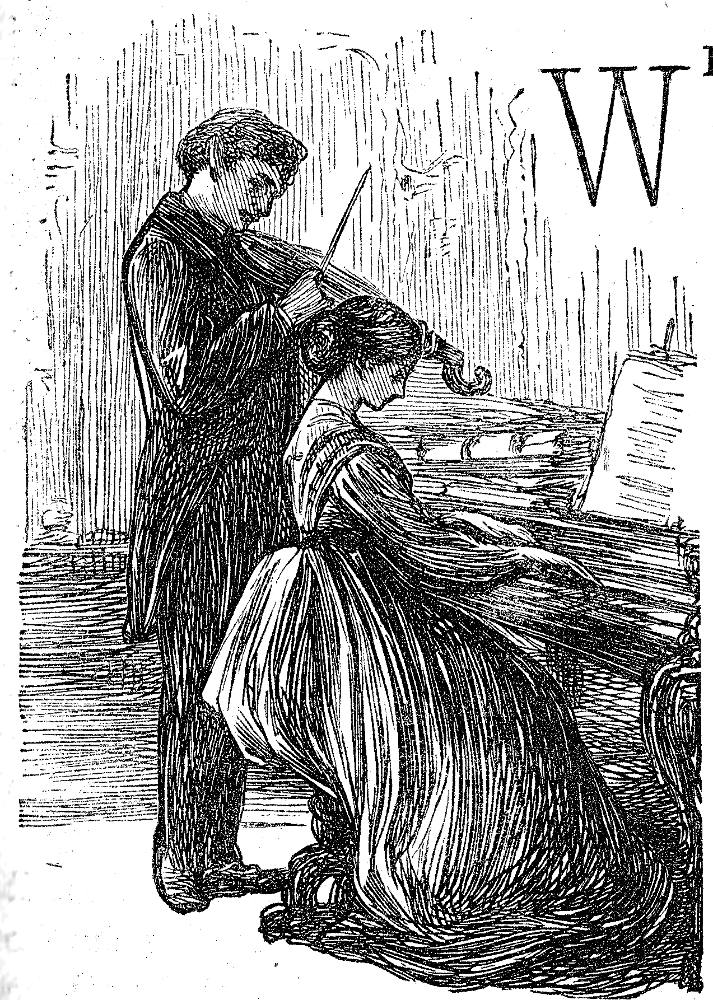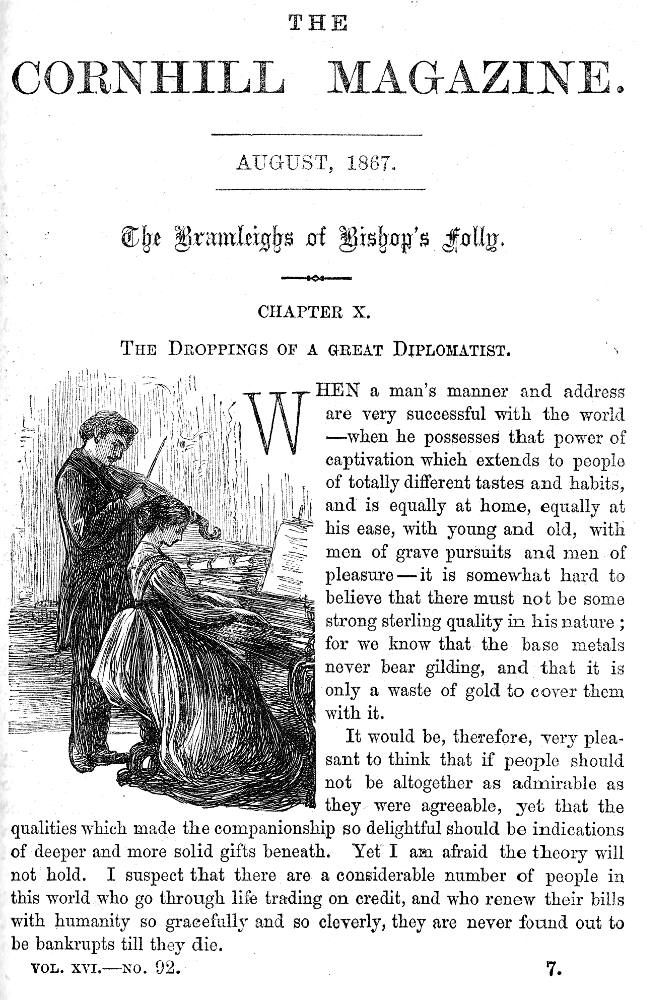

Initial-letter Vignette "W" (Mr. Cutbill performing on the violoncello as an accompanist) (Vol. XVI, page 129) vertically-mounted, 7.8 cm high by 5.1 cm wide, signed "MEE." in the lower-left corner of the main illustration. Mary Ellen Edwards, third thumbnail vignette illustration for Charles Lever's The Bramleighs of Bishop's Folly in the Cornhill Magazine (August 1867), Chapters X-XII ("The Droppings of a Great Diplomatist" through "An Evening Below and Above Stairs.") in Vol. 16: pages 129 through 148 (23 pages including unpaged illustration in instalment). The wood-engraver responsible for this illustration was Joseph Swain (1820-1909), noted for his engravings of Sir John Tenniel's cartoons in Punch. [Click on the image to enlarge it; mouse over links.]
This initial-letter vignette introduces the passage on the same page:
When a man's manner and address are very successful with the world, — when he possesses that power of captivation which extends to people of totally different tastes and habits, and is equally at home, equally at his ease, with young and old, with men of grave pursuits and men of pleasure, — it is somewhat hard to believe that there must not be some strong sterling quality in his nature; for we know that the base metals never bear gilding, and that it is only a waste of gold to cover them with it. [Vol. XVI, Chapter X, "The Droppings of a Great Diplomatist," p. 129]
The After-dinner Concert
However, as the above passage makes clear, this third vignette does not concern Lord Cudluff at all, but showcases the musical talents of his agent, Cutbill. Clearly, Edwards would rather use the third instalment's miniature illustration to lead the reader into Lever's introducing the concert which opens the final chapter in the instalment.
It was not very willingly that Mr. Cutbill left the drawing-room, where he had been performing a violoncello accompaniment to one of the young ladies in the execution of something very Mendelssohnian and profoundly puzzling to the uninitiated in harmonics. After the peerage he loved counterpoint; and it was really hard to tear himself away from passages of almost piercing shrillness, or those still more suggestive moanings of a double bass, to talk stock and share-list with Colonel Bramleigh in the library. Resisting all the assurances that “papa wouldn't mind it, that any other time would do quite as well,” and such like, he went up to his room for his books and papers, and then repaired to his rendezvous. [Chapter XII, "An Evening Below and Above Stairs," 140]
Scanned image and text by Philip V. Allingham. [You may use this image without prior permission for any scholarly or educational purpose as long as you (1) credit the person who scanned the image and (2) link your document to this URL in a web document or cite the Victorian Web in a print one.]
Bibliography
Lever, Charles. The Bramleighs of Bishop’s Folly. The Cornhill Magazine 15 (June, 1867): pp. 640-664, and (July-December 1867): 1-666. Rpt. London: Chapman & Hall, 1872. Illustrated by M. E. Edwards; engraved by Joseph Swain.
Stevenson, Lionel. "Chapter XVI: Exile on the Adriatic, 1867-1872." Dr. Quicksilver: The Life of Charles Lever. London: Chapman and Hall, 1939. Pp. 277-296.
Created 26 August 2023